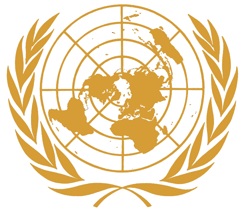UN rights investigator denounces abuses in Iran

GENEVA (Reuters) - A UN human rights investigator called on Iran on Thursday to revoke laws restricting freedoms of the press and expression, free some 30 detained journalists and bloggers and halt satellite jamming and blocking of websites.
Iranian President Hassan Rouhani has failed to create a freer society since his landslide election on a progressive platform in 2013 but has urged patience in bringing about liberalisation, something resisted by the powerful security services and judiciary.
Ahmed Shaheed, the United Nations special rapporteur on Iran, also said that at least 753 people were believed to have been executed in the Islamic Republic last year, the highest number since 2002, half of them for drug-related crimes.
Shaheed urged Tehran authorities to rescind capital punishment for drug offences and juveniles, in line with international law, and to uphold fair trial standards.
"High priority should be placed on amending laws and policies that undermine or violate internationally recognised rights and standards," Shaheed said in his annual report to the UN Human Rights Council, which he will address on Monday.
Laws that "restrict the press, criminalise expression, limit access to information and give rise to the ongoing arrests of civil society actors and members of vulnerable groups, including religious and ethnic minorities", should be rescinded, he said.
Iranian authorities have repeatedly denied Western allegations that they are trying to stifle dissent by arresting moderate politicians, student activists, lawyers and journalists. The government says it welcomes constructive criticism and upholds the principle of free speech.
Shaheed, a former foreign minister of the Maldives, has not been allowed to visit Iran. His report is based on interviews with dozens of people contacted in the Islamic Republic and with exiles in Western Europe.
At least 29 journalists, bloggers and Internet users are reported to have been detained, imprisoned or prosecuted since May 2014, including Washington Post reporter Jason Rezaian, according to the rapporteur.
"Journalists arrested or prosecuted are often accused of contact with foreign media and are seemingly targeted due to their criticism of government leaders or for discussing sensitive policy issues," Shaheed said.
"The blocking and filtering of websites also continues to be ubiquitous and is apparently ordered by multiple agencies."
Shaheed voiced concern at several draft bills that appear to "further negate human rights" in Iran through provisions that would expand government influence over the media, civil society, political organisations and the legal community.
While calling for patience on domestic change, Rouhani has focused on repairing the flagging economy, which stands to benefit from an easing of sanctions as part of a budding deal with six world powers on Tehran's disputed nuclear activity.







